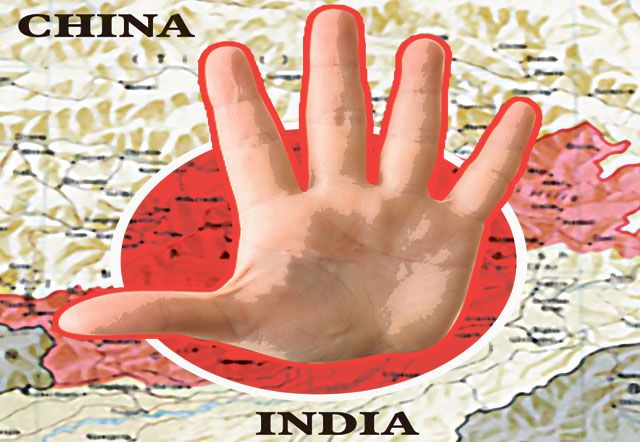Genghis Khan would be proud of today's China — the so-called socialist heir to Marx and Engels — that has more in common with the marauding hordes of times past. No wonder then the portrait of Stalin was prominently displayed at the parade celebrating Beijing's 60th anniversary.
One of the world's most inhuman rulers, his picture still takes the pride of place in the office of the Communist Party of India (Marxist) politburo in Kolkata.
Therefore, it was not surprising that CPM secretary-general Prakash Karat underplayed China's recent intrusions and attributed Indian criticism to the "strategic alliance" between India and the US.
Those who remain sentimental about Beijing are confusing China with communism that represented the reformist ideals and passions of the late 19th and early 20th centuries. Such people cling to China with all its faults because they themselves have drifted away from the ideology of the true Left.
Both the CPI and CPM, which claim to represent the Left, still have the same reverence for Beijing as they did when the Chinese were undertaking Long March under the leadership of Mao Tse-Tung. Then the goal was to build an agrarian economy from below. Capitalism, which the country has now adopted for development, did not fit into the scheme the Chinese were pursuing at that time.
Out of capitalism grew the idea of superiority in arms.
The way China is behaving towards India today invokes memories of the run up to what happened in 1962.
The forcible building at that time of the infamous Aksai Chin Road and the gruesome murders of our border patrol men, is a sad chapter in the history of our bilateral relations and something we hoped had been buried.
But recent incursions by the Chinese soldiers into Arunachal Pradesh have been accompanied by written boasts that they can take over the whole place in a couple of days.
I thought China occupied in 1962 all the territory it claimed and declared a unilateral ceasefire. It did not agree to the Colombo proposals which suggested 12.5 kilometres withdrawal from the positions the two sides held. India, even though a victim, complied with the proposals. Many years later when Prime Minister Rajiv Gandhi visited Beijing, he agreed to give sanctity to the Line of Actual Control.
Over the years, the border talks between the two countries have not resulted in any firm borders either on the Ladakh or Arunachal side. But the middle sector, including Sikkim, has been recognised by China. Why has it now intruded into Sikkim and left its evidence in the shape of large red Chinese characters painted on rocks? This definitely indicates a change in Beijing's thinking.
No sovereign country can take this kind of behaviour lying down. Nor can we condone China's claim that Arunachal belongs to it. Arunachal Pradesh is an integral part of India and New Delhi has made it clear more than once. The latest irritation has come in the shape of visas granted to people originating from Kashmir. Instead of the standard type, the visa has been attached to a separate piece of paper stapled on to the passport. This is nothing more than a childish prank designed to convey that China can lay down the law and get away with it.
Prime Minister Manmohan Singh continues to commend a relationship of peace and goodwill despite these provocations.
Military might
I concede that China is far ahead of us in military prowess.
Yet, India is not the same as it was in 1962. It is economically an emerging giant. It may not have allocated as much money to defence as the dangers on its borders warrant. Jawaharlal Nehru also made the same mistake. He wanted to develop the country instead of having a large military arsenal.
But if the Chinese want to articulate that power lies in the barrel of the gun, New Delhi may also be forced to re-order its priorities.
We are not on weak ground, but what I cannot understand is the series of statements by the service chiefs declaring that India could not take on China.
The outgoing Naval Chief, Admiral Suresh Mehta, said the country had neither the capability nor the intention to match China's force. The new Air Chief, P.V. Naik, said the strength of our air force is one third of that of China's and we cannot match it.
If we are ill-equipped in military strength, the chiefs can communicate this to the government. Otherwise they are not only demoralising the people, but also misleading the government.
We do not have enough expertise on China. India by now should have encouraged the development of scores of experts capable of dissecting every Chinese move. Both Russia and Japan have, over the years, amassed sufficient information to help them deal with the Chinese. We can learn from them.
Force, however strong, cannot and should not have the last word.
Kuldip Nayar is a former Indian High Commissioner to the United Kingdom and a former Rajya Sabha member.









